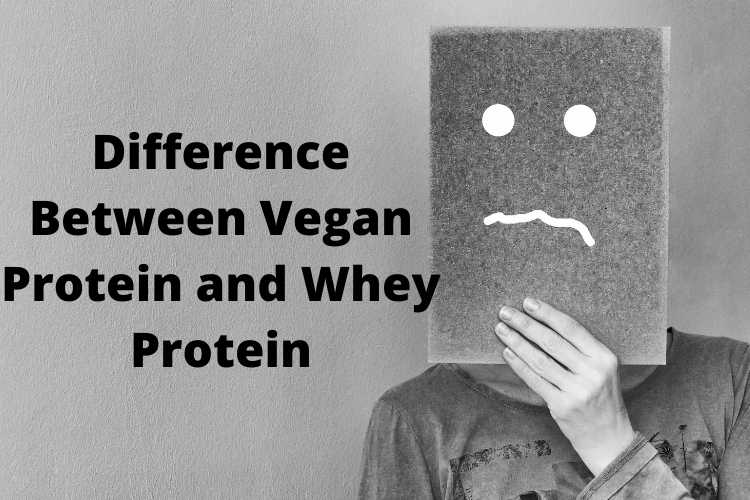Difference Between Vegan Protein and Whey Protein?
It might be difficult to pick amongst the several protein powders available on the market. Many powders are produced from whey, an animal protein, although plant-based powders such as soy and pea are also available in the market. The plant-based diet is getting a lot of traction, and it’s sometimes referred to as a “sustainable lifestyle.” Vegan protein powders are lactose-free and primarily made from plants. In this blog we are going to tell you the Difference Between Vegan Protein and Whey Protein. Whey Protein Powder, on the other hand, is a blend of proteins found in whey, a byproduct of cheese production. The component is also available as a flavored powder and is a high-protein source.
What is Vegan Protein?
One of the most prevalent health concerns among vegans is that the meat-free diet is low in protein, making it difficult to battle protein deficiencies. Vegan protein powders are lactose-free and primarily made from plants. Vegan protein supplements are advantageous since they might assist vegans and vegetarians in getting adequate protein in their diets. Vegan protein comes from easily digestible foods like peas and grains. Many vegan proteins also contain fiber and digestive enzymes, and while they are lower in calcium than whey, they are richer in iron.
Plant-based protein powders come from a variety of sources, including brown rice, pea, soy, and hemp. A powder may be produced from one type of plant or a mix of plants, depending on the brand. Plant-based protein powders don’t include dairy or lactose because they’re produced completely from plants, making them a suitable choice for vegans or lactose-intolerant people.
Read: Difference Between Delta and Mu Variant
What is Whey Protein?
One of the two proteins present in milk is whey protein (the other is casein). Because of its high concentration of amino acids, particularly leucine, it aids in muscle protein synthesis. Whey protein is regarded as one of the greatest forms of protein since it is quickly absorbed by the body and includes several active proteins that aid in the immune system’s function.
Whey protein supplements include about 70% to 80% protein, as well as lactose and fat. Whey protein supplements can be used in the morning before an exercise to promote protein synthesis, within 30 minutes after a workout to assist muscle recovery and development, or before night to help muscle recovery and growth.
Because whey protein powder is manufactured from cow’s milk, it includes lactose, a milk sugar. Whey protein isolate has less lactose than whey protein concentrate due to manufacturing changes.
Read: Difference Between Covid Toes and Gout
Things that make Whey Protein Different From Vegan Protein
1. Plant-based proteins do not include animal products, making them acceptable for vegetarians and vegans. Whey originates from cows; plant-based proteins and is not good for people who are lactose intolerant.
2. Whey protein is always full; however, depending on the mix of vegetable-based proteins in a plant protein or blend, some plant proteins or blends may be incomplete.
3. Plant-based powders can vary substantially depending on the kind of plant protein utilized; whey protein powders have about the same quantity of protein from brand to brand.
4. Whey protein powders are typically moderate in flavor, but plant protein powders can be earthy, nutty, and even bitter.
5. Plant proteins, on average, need less land, water, and energy to manufacture than animal proteins.
Conclusion:
I hope this article is sufficient enough to clarify the difference between Vegan Protein and Whey Protein.

